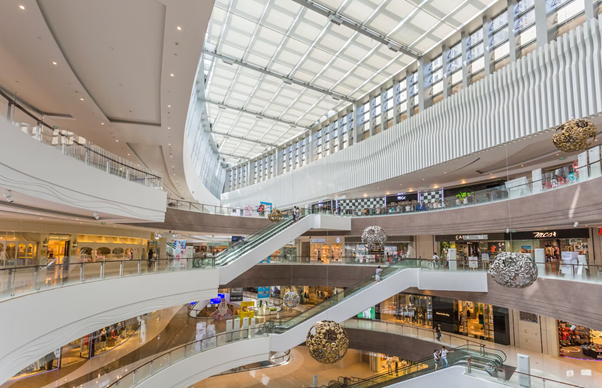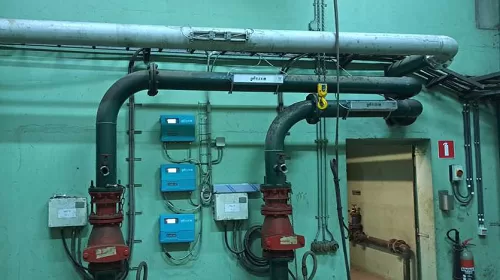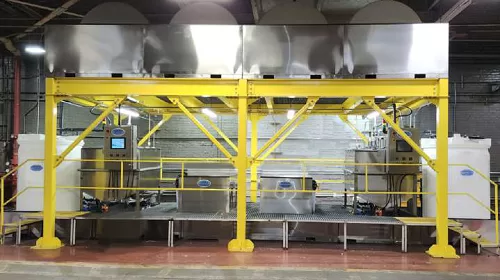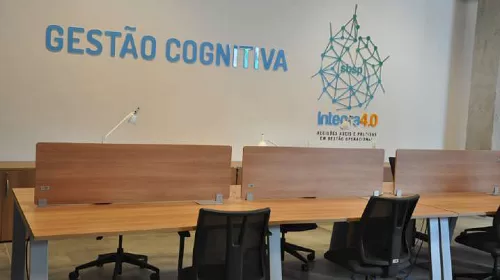Shopping malls, often witnessed as hubs of commerce and entertainment, generate a variety of wastewater that, if overlooked, can lead to unforeseen problems. In this exploration, we shed light on how Superweld Ecosolutions came to the rescue in solving the wastewater issues within a shopping mall and also learning the potential consequences of neglecting proper wastewater management.
The population within a shopping mall is diverse, comprising various consumers as well as staffers with distinct purposes. Before we move ahead in understanding the challenge we must first learn the different segments of the mall population and the type of wastewater being generated from the shopping malls. Shopping malls are dynamic ecosystems where various activities take place, creating a complex space of wastewater sources. These include:
● Foot Traffic:
The constant rush of visitors contributes to restroom usage, leading to the generation of sanitary wastewater. If not treated well can result in unhygienic conditions and a negative impact on the overall mall environment.
● Food Courts:
Food courts, with their diverse culinary operations, produce a high volume of wastewater. From pot washing and food handling to continuous dishwashing, this area generates both solid waste and waterborne pollutants. Neglecting the treatment of this wastewater can lead to foul odours, hygiene issues, and potential legal implications.
● Commercial Spaces:
Individual stores, boutiques, and service providers within the mall also contribute to wastewater. From cleaning activities to restroom usage, these smaller sources collectively add to the overall wastewater load. Ignoring their impact can result in localised problems that may escalate if left unattended.
● Cleaning Operations:
Even seemingly clean operations, such as maintenance activities and general cleaning, produce wastewater. Overlooking the treatment of this water may lead to contamination of nearby water bodies, soil, and infrastructure.
Supweweld encountered a shopping mall owner seeking assistance in revitalising their Sewage Treatment Plant (STP) and addressing issues with their wastewater treatment processes. The current operational methods of the shopping mall were deemed insufficient, requiring urgent attention and improvement.
So, how exactly was this shopping mall facing unexpected problems? It had some unnoticed issues in how it was running, leading to a big challenge that nobody saw coming!
Addressing the real challenge!
Our subject, a thriving shopping mall, encountered significant problems in managing its wastewater due to its diverse operations. With varying pollutant loads arising from daily foot traffic, food court activities, and inconsistent usage patterns, the existing Sewage Treatment Plant (STP) struggled to maintain efficiency. These were the major problems:
1. Inadequately Designed STP:
The shopping mall encountered a significant challenge in wastewater management because it has varying pollutant loads. The Sewage Treatment Plant (STP) in place was insufficient to handle these fluctuations, lacking the necessary size and buffer capacity.
The fundamental principle of an STP is maintaining consistent treatment by equalising the pollutant load in wastewater. It is crucial to provide a uniform flow to microbes, avoiding variations like high BOD one day and low BOD the next. To achieve this, the collection tank should have ample buffer capacity. A minimum buffer of 2-3 days is essential to accommodate the diverse wastewater generated by the shopping mall, ensuring a steady and reliable treatment process.
The size of the plant was unable to handle the fluctuations and thus, no buffer.
2. Bad odour coming out of STP:
Oil and grease from kitchen activities was coming out with the wastewater which in turn introduced heavy pollutants into the STP. This led to potential odours originating from the Sewage Treatment Plant, and the repercussions of unpleasant smells within the shopping mall presented a substantial and urgent challenge.
The owner had to urgently find a solution to avoid potential legal consequences.
3. No expert operator to monitor the STP:
To run a wastewater treatment plant effectively, it’s important to have a well-thought-out plan and skilled workers who know how to treat wastewater, manage odours, and handle unexpected issues. These experienced individuals, needed due to the demanding nature of the job, often charge higher fees compared to those who operate residential sewage treatment plants.
When managing a wastewater treatment plant, it’s crucial to consider your budget. This underscores the importance of using technology that focuses on recycling water, such as UF or RO membranes.
Installing UF membranes requires meticulous attention, ensuring Total Suspended Solids (TSS) below 20 PPM, and Biological Oxygen Demand (BOD) substantially lower than 40 milligrams per litre. Neglecting this would block the UF membrane, which is leading to compromising the most expensive and crucial part of the STP infrastructure.
“Having a dedicated expert for continuous monitoring of the wastewater plant is essential. This professional ensures timely troubleshooting, maintains comprehensive data records, and consistently updates officials on the plant’s operations to prevent potential issues from escalating.” – Sanjay Bahl, CEO at Superweld Ecosolutions.
The shopping mall owner and operators faced a tough time finding someone to fix the wastewater issue. They consulted many wastewater treatment companies, tried various products to solve the problem, but things kept getting worse. It taught them that it’s not just about the products; having years of expertise and the right knowledge is crucial for finding the correct solution.
This wasn’t just any Sewage Treatment Plant; it was an STP designed for a shopping mall, demanding the highest level of care. Overlooking any aspect could trigger a chain reaction of interconnected issues, ultimately affecting the footfall of the shopping mall.
When the need was dire, they reached out to the right solution at the right moment. Indeed, Superweld Ecosolutions’ expertise has consistently been a saviour in such situations. Explore their LinkedIn to discover numerous instances where Superweld has successfully revived Sewage Treatment Plants of different companies and hotels, rescuing them from their most challenging conditions.
So, what exactly did the team of Superweld do that no other companies couldn’t?
Looking out for a solution:
Enter Superweld, a leader in wastewater management solutions. Recognizing the unique needs of the shopping mall, Superweld implemented an all-in-one approach to revolutionise wastewater management.
1. Tailored Microbial Treatment:
Superweld introduced advanced technologies, including Super24 and Oxysuper, specifically designed to address the mall’s complex wastewater composition. Let’s understand how they performed magic on the treatment.
Oxysuper: A powdered bio product containing a blend of microbes, enzymes, and herbs designed to foster the development of a well-settling Mixed Liquor Suspended Solids (MLSS). Specifically employed for the Commissioning, Recovery, and Maintenance of tanks in activated sludge systems.
Super24: A formulation based on minerals that enhances Dissolved Oxygen, removes odours, and decreases BOD, COD, and TSS. It effectively eliminates unpleasant odours, extends sludge settling time in clarifiers, and addresses Ammonia, H2S, and Septic conditions. Ideally used in treating wastewater in Sewage Treatment Plants (STPs), composting, and the digestion of oil and grease.
Super Settler: A unique 100% organic coagulant and flocculant designed to diminish Total Suspended Solids (TSS), Color, Biological Oxygen Demand (BOD), and Chemical Oxygen Demand (COD). Suitable for use in activated sludge systems, serving as an excellent alternative to PAC and inorganic coagulants.
These products not only ensured efficient treatment but also played a crucial role in controlling odours and mitigating the impact on the mall’s overall atmosphere.
“The use of Bioculture like SUPER 24 products in wastewater plants is becoming more and more relevant not only to meet current demands but also adapt seamlessly to future challenges, ensuring sustainable and resilient wastewater management.”- Sanjay Bahl mentioned.
2. Expertise and Personnel:
Superweld emphasised the importance of technically qualified personnel to operate the STP. A trained workforce capable of troubleshooting, handling emergencies, and ensuring a consistent flow became an integral part of the solution. Superweld’s team demonstrated the expertise needed to manage the complexities of the mall’s wastewater.
The Final Results:
The implementation of Superweld’s solutions resulted in a significant turnaround for the shopping mall. The tank size even though was small, the flow rates were optimised, and the persistent issues of clogging and inefficient treatment were resolved.
Remarkably, within just 10 days of implementing Superweld’s recommendations and products, the STP began to perform efficiently. The overall water quality significantly improved, leading to clearer effluent.
As part of the agreement, the mall owner insisted that only Superweld products be used in the STP and that they receive ongoing guidance from Superweld to maintain the plant’s optimal performance.
The mall owner’s testimonial further solidified the success of Superweld’s interventions, stating, “Only Super24 and Oxysuper must be used to treat the wastewater; no other microbial treatment should be entertained.”
Benefits of considering Superweld Ecosolutions?
If your company is going through similar wastewater challenges, Superweld Ecosolutions presents a compelling case study. Their tailored technologies, emphasis on expert advice, and years of commitment towards successes of various other companies make them a standout choice for transforming wastewater management in complex environments.
In conclusion, this paints a comprehensive picture of the shopping mall’s wastewater management journey, underscoring the critical role the experts of Superweld Ecosolutions played in overcoming challenges. By integrating advanced technologies, expert personnel, and tailor-made solutions, the team not only addressed the immediate issues but also opened the gates for a sustainable and efficient wastewater management in the long run.
If you encounter similar wastewater treatment challenges, don’t hesitate to reach out to Superweld Ecosolutions– your trusted partner in turning wastewater problems into success stories.





